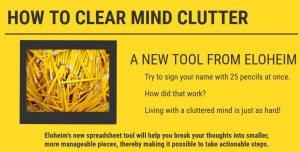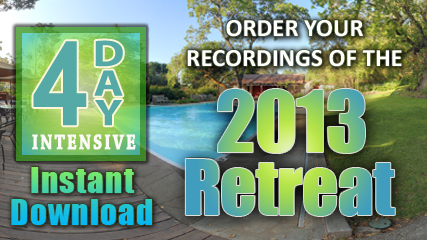We had a tremendous session on October 22nd.
This is the transcript of the Visionaries section. We started off with a bang and built from there!
Watch the entire session on demand!
October 22, 2014
Eloheim and The Council meeting 10-22-2014
Visionaries:
Ambition.
That’s not a word we talk about very often, is it? Ambition. Ambition! Ambition. When you don’t have to fight through your previous problems all the time, when you’re not constantly waking up in the stance of, “I’ve got issues of various natures,” you can have ambition. You can have dreams, you can have new focuses, and you can have ideas about what more you want in your life.
Now, ambition is one of those words that kind of leaves a bad taste in peoples’ mouths because typically it’s defined as: you step on somebody else to get to where you want to go. That’s not the kind of ambition we’re talking about. The kind of ambition we are talking about is: you want to be bigger. You want to do the thing you came here to do. You want to answer that call within yourself to make a difference. To be all that you can be. That’s ambition.
The thing about ambition is – when it’s not twisted to look like just a weird way of running the survival instinct – it offers you surface area for expression.
Now, when you think about starting something new, the survival instinct will often tell you, “don’t don’t don’t don’t.” When you have an idea and you have a vision and you want to see it through, the survival instinct has lots of places to grab a hold of you. The work we’ve done with the survival instinct allows you to change those handholds from surface area for survival instinct into opportunities for expression.
Each one of those places where the survival instinct says, “get small, get small,” is a place to put your truth.
Visualize the fractal nature of this idea. Every single one of those little handholds where the survival instinct has grabbed a hold of you and said “stay small,” is a little arm of the swirl of the fractal that you can explore deeply. When the survival instinct says, “stay small,” go right there! Look it straight in the face and dig. Dig into it to see what the outcome is that you’re afraid of if you try something new. Which “-er” (authority figures: MothER, FathER, teachER, preachER, employER, etc) are you hearing saying that you shouldn’t try? Whatever it is, dive into it, just like you dive into a swimming pool. It’s a fractal space and you can dive into it and root out the story that it’s trying to tell you.
It is not telling you the truth! At least it’s not telling you the truth of the current version of you, it’s telling you a story. Yes, it’s telling you a story.
Is it telling you something familiar? Absolutely. It’s a story told many times. That doesn’t make it your truth, it just makes it a story told many times! It’s very easy to misinterpret a story told many times AS truth. It is not. It is simply a story told many times. Believed by many as well, maybe even most. But that doesn’t make it your current truth. It might make it something that you’re familiar with, however, it doesn’t make it your current truth.
Every place that the survival instinct tries to tell you a story, you have the opportunity to replace that with what your actual truth is. And remember, your truth can be, “I don’t know.” Your truth can be, “I’m tempted to be paranoid, afraid, terrified.” Your truth can be, “I’m tempted to feel small, I’m tempted not to try, I’m tempted to not do it at all.” Those all can be your truths without them having to be the fact of how you behave. Do you understand? That doesn’t have to tell you how to behave! It can just be an acknowledgement that you’re in a body and you have biological system and you have habits and you have neural pathways that have long been used that say, “Stay small, be scared.”
“Stay small, be scared” is a message you have heard for centuries, in your cumulative lifetimes, it’s been centuries and centuries if you added them all up. “Stay small, be afraid, keep your head down, don’t get noticed, you might just make it through. But be worried.” That’s the story you’ve been told by your biology. It’s how you’ve stayed alive. Now, we have worked on, slowly but surely, the relationship you have to the biology. The first thing that we had to work on was a new interpretation of survival instinct messages. You began to ask yourself, “Is this fear or fascination.” You began to ensure that you don’t automatically interpret a survival instinct message as danger. You started to allow the messages to simply be discovery. That was a big part of what we have done thus far in 2014; we explored that together and you’ve made amazing progress. Amazing progress.
And now, just be careful, because you don’t want to slip back. The old way you did it can come back around and try to convince you to go back to it. Once you make some progress using Plan B, Plan A will try to tell you “now things are better, come back to me.” We’ve seen people fall for it. Plan A being the “be afraid, stay small” plan. Plan B being the “I will face uncertainty” plan. You face uncertainty, your life changes, and then you go back to being afraid.
You have to keep doing what works. Even though how it exactly worked you were never 100% sure about because you were exploring something brand new. That you can’t prove it or reproduce it, doesn’t make it invalid. Obviously not. You’ve made progress evolving your relationship to uncertainty; don’t go back into letting fear drive you.
Because then we can start to work with the biology in new ways and we don’t only have to talk about the survival instinct all the time. (chuckles) That’s the point we’re getting to, we’re almost there! Where we can start introducing new ideas about biology that don’t have to start and stop with, okay wait, that survival instinct is still screwing you up! We’re getting closer.
The number one thing to do is to keep watching your relationship to uncertainty. Don’t contract around the idea of “for sures.” Like, “I want to make this happen for sure” or “I want to protect this idea for sure” or “I want to build a fence around this so I can be for sure.” That’s an act of contraction. Be very cautious that you don’t get to a place where you feel more comfortable about your life and then contract to try to hold onto it. Stay open the way you were to get you to this point.
Now it’s about consistency.
You sort of clawed your way up the mountain of trigger, now that you’re on the plateau, you must be consistent. Just because the trigger looks different doesn’t mean it’s not there to be explored still. Give yourself permission to stick with what worked and what is working.
Let that be your ambition. The opportunity is here. There’s no doubt of that.




 Eloheim and Veronica
Eloheim and Veronica @channelers on Twitter
@channelers on Twitter Youtube Channel
Youtube Channel RSS Feed
RSS Feed E-mail Newsletter
E-mail Newsletter
